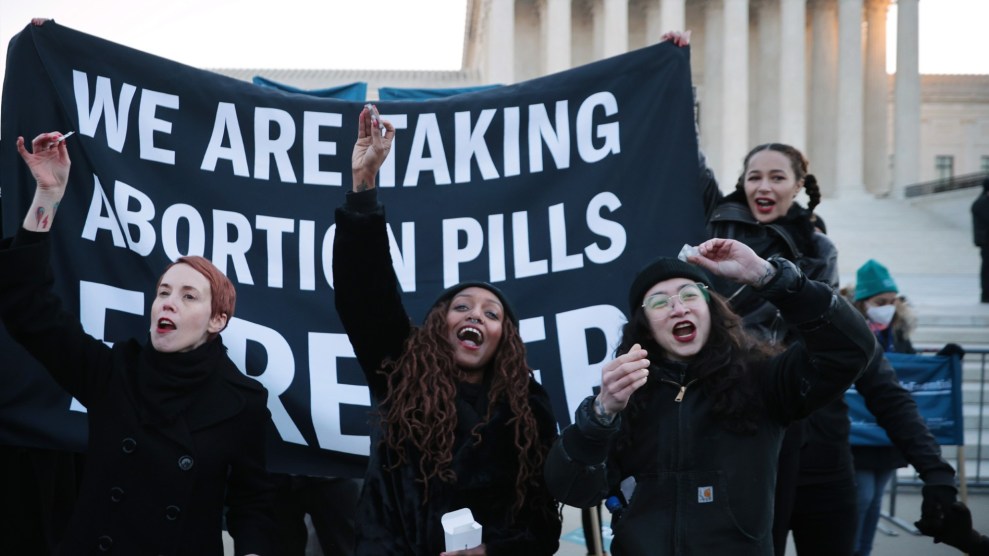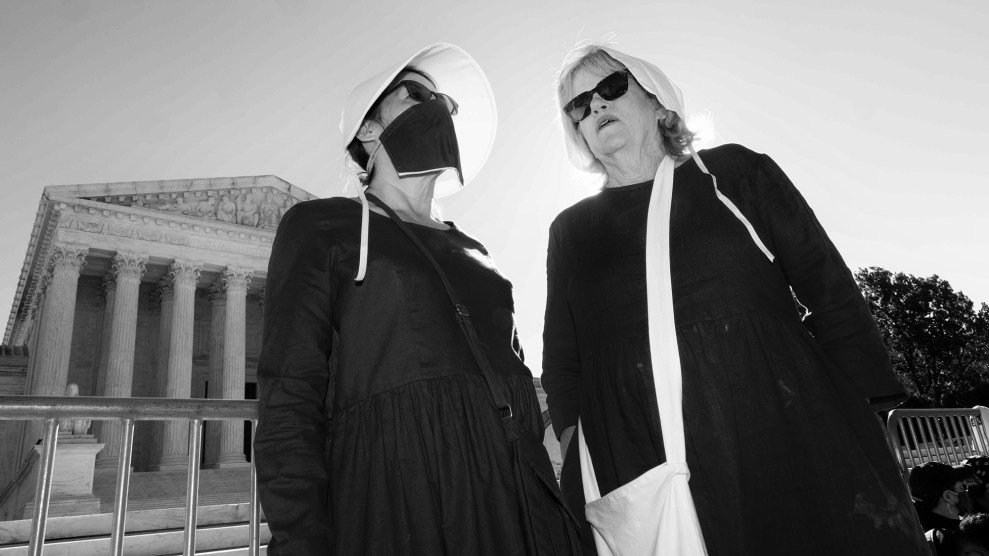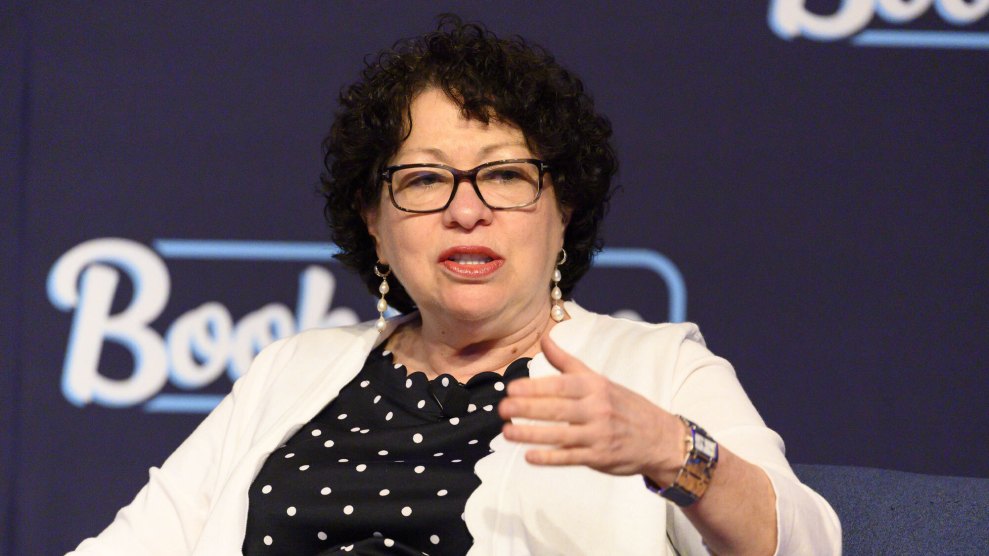
Activists took the abortion pill in front of the Supreme Court while justices heard arguments for the Mississippi abortion case. Chip Somodevilla/ Getty
The Food and Drug Administration announced on Thursday that it will loosen restrictions on the abortion pill mifepristone, allowing people to receive the pill via mail or pharmacy instead of having to appear in person at a clinic or hospital.
The decision comes while the Supreme Court deliberates over a Mississippi ban on abortion after 15 weeks. The court is widely expected to use the case to roll back nearly a half century of abortion rights. The court ruled last week that an abortion restriction in Texas could remain in effect.
For almost 30 years, the FDA restricted the use of mifepristone through its drug safety program, even though the drug has long been known to be safe and effective. The new change “will allow many patients to access care earlier with fewer burdens and costs,” ACLU attorney Julia Kaye told the Washington Post.
Misoprostol, the second pill needed in medication abortion, has long been accessible at a pharmacy with a prescription. Earlier this year, the Biden Administration temporarily lifted the restriction on mifepristone to ensure abortion access continued despite the challenges of the pandemic.
According to the FDA, the restriction was modified in order to “reduce burden on patient access and the health care delivery system and to ensure the benefits of the product outweigh the risks.”
Yet the change won’t mean a whole lot in much of the country. Nineteen states, including Texas, Mississippi, and Alabama (which recently introduced a “heartbeat bill” similar to Texas’) restrict the use of telemedicine for abortion. People across the South and the Midwest will have to travel to sanctuary states like California or New York for telemedicine appointments and to receive the medication.



















